Artificial Intelligence in The 66th Annual Grammy Awards
AI is expanding significantly & now it is making its presence in the music industry
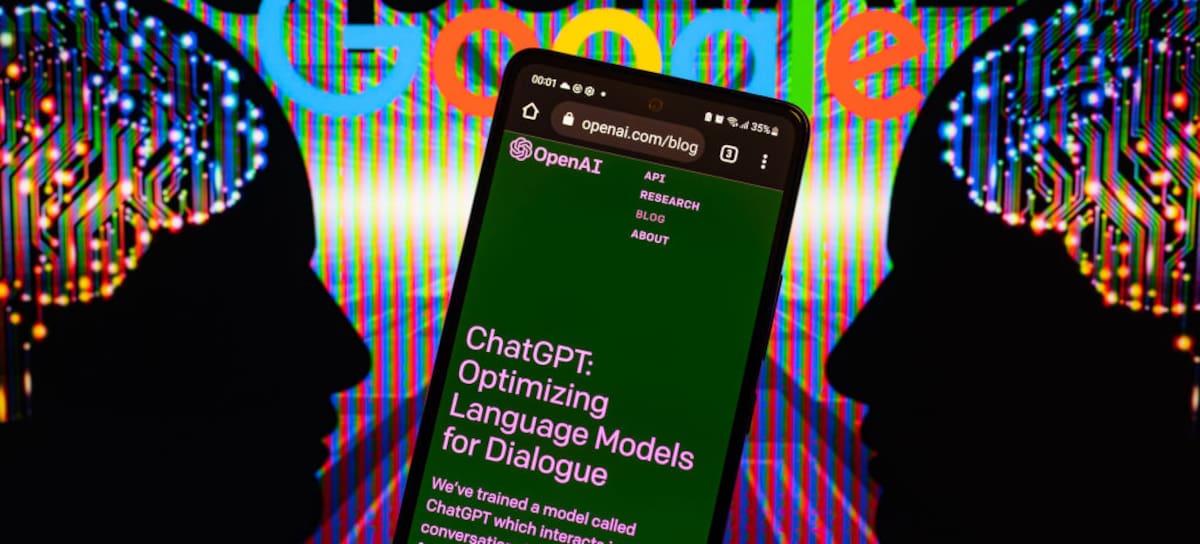
Google - OpenAI displayed on screen with ChatGPT on mobile seen in this photo illustration. Jonathan Raa/Getty. / NurPhoto
In recent years, artificial intelligence has significantly expanded, not only in computer systems but also in our daily lives.
During the history of literature and cinematography, this technological advancement has served as the inspiration for numerous movies and books exploring science fiction. These works often depicted artificial intelligence as something distant and even utopian. However, in our present reality, we are gradually moving closer to those imaginative tales, often without even realizing it.
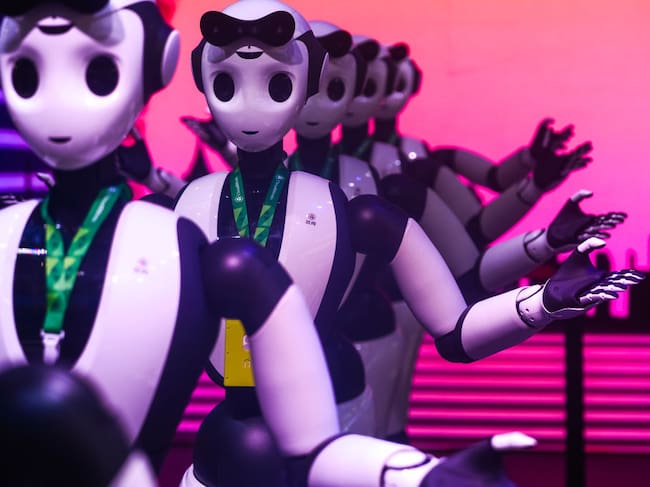
Robots at Mintasca intelligence technology company at World Artificial intelligence. Ying Tang/Getty. / NurPhoto
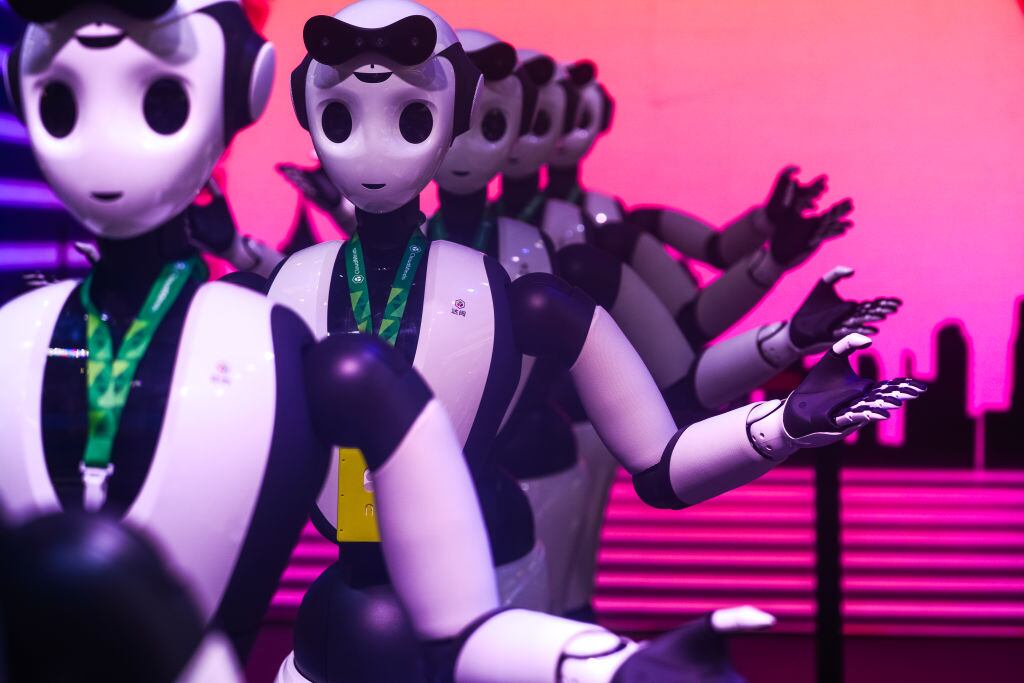
Robots at Mintasca intelligence technology company at World Artificial intelligence. Ying Tang/Getty. / NurPhoto
Simple examples of artificial intelligence integration include virtual assistants like Siri or Alexa, which reside within our smartphones or speakers in our homes, helping us with our daily lives with their features and functions.
One notable show that delves into both the allure and darker aspects of AI is Netflix’s «Black Mirror». This popular series predominantly explores dystopian scenarios, presenting cautionary tales of the potential consequences of advanced technology. Episodes such as «White Christmas» and «Be Right Back» provide chilling portrayals of the unexplored results of our reliance on AI.
Moreover, artificial intelligence presence is becoming increasingly common on platforms such as TikTok, where it effortlessly generates images.
Artificial Intelligence Brief History
Ada Lovelace
Before the era of computers had not yet begun, Ada Lovelace –the daughter of the poet Lord Byron– envisioned the skills of the machine that would eventually become widely used. In 1843, Lovelace wrote about the potential of this device to be programmed to follow instructions. She also anticipated that these machines would not only perform calculations but could also understand symbols, making them useful for music and art.
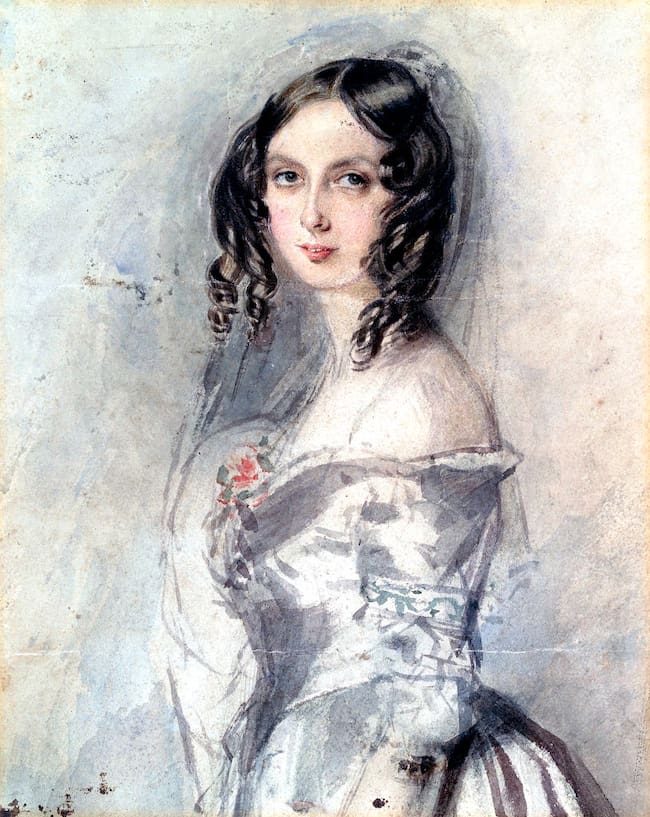
Portrait of English author and mathematician Ada Byron (later Lovelace, 1915 – 1852). Getty. / Interim Archives
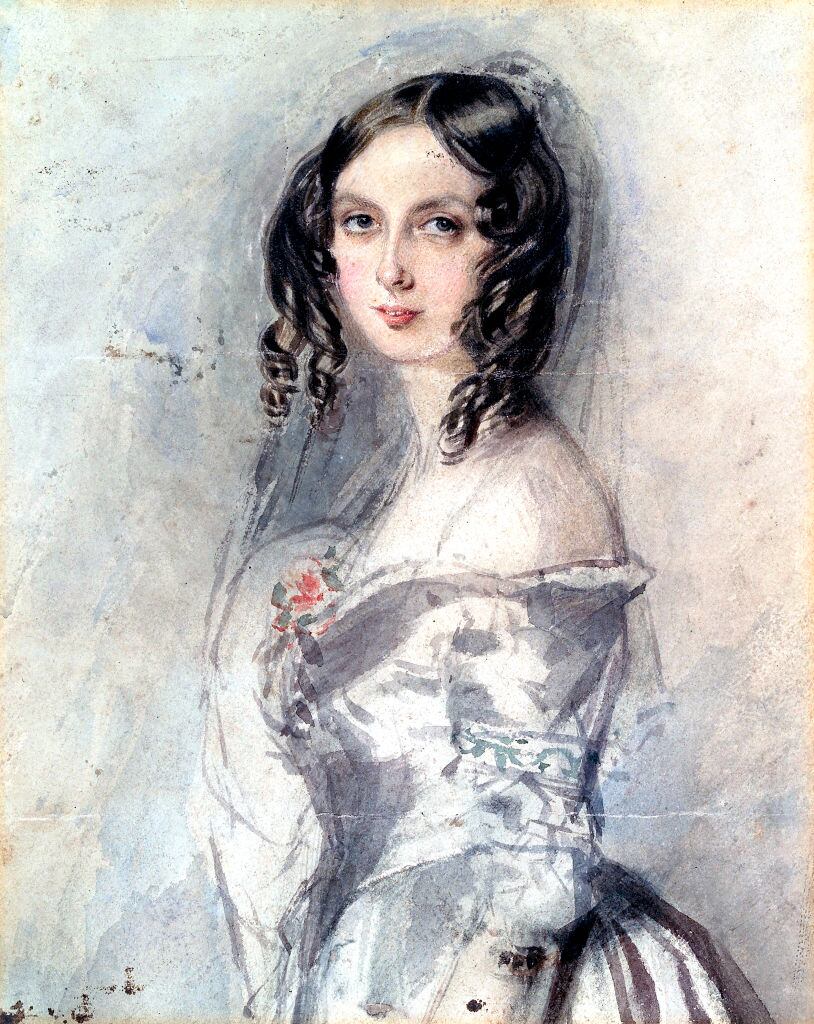
Portrait of English author and mathematician Ada Byron (later Lovelace, 1915 – 1852). Getty. / Interim Archives
In her writings, Lovelace exposed an awareness of the potential consequences of computers, emphasizing the responsibility that programmers would bear. However, she later abandoned the opinion that computers could one day possess independent thinking and creative abilities.
What is Artificial Intelligence?
The subject is complex and has a rich history, but in simple terms, Artificial Intelligence refers to the science and engineering behind the creation of intelligent machines. It involves using computers to understand and replicate human intelligence.
AI enables digital computers or computer-controlled robots to perform tasks that are typically associated with human intellectual processes, such as reasoning, discovering meaning of things or events, and learning from past experiences.
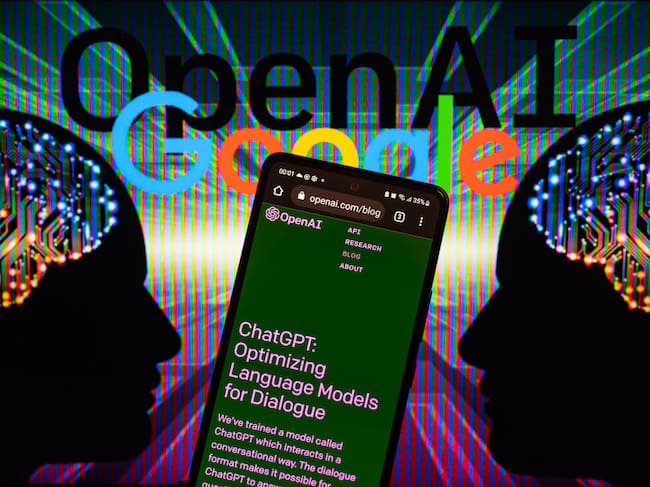
Google - OpenAI displayed on screen with ChatGPT on mobile seen in this photo illustration. Jonathan Raa/Getty. / NurPhoto
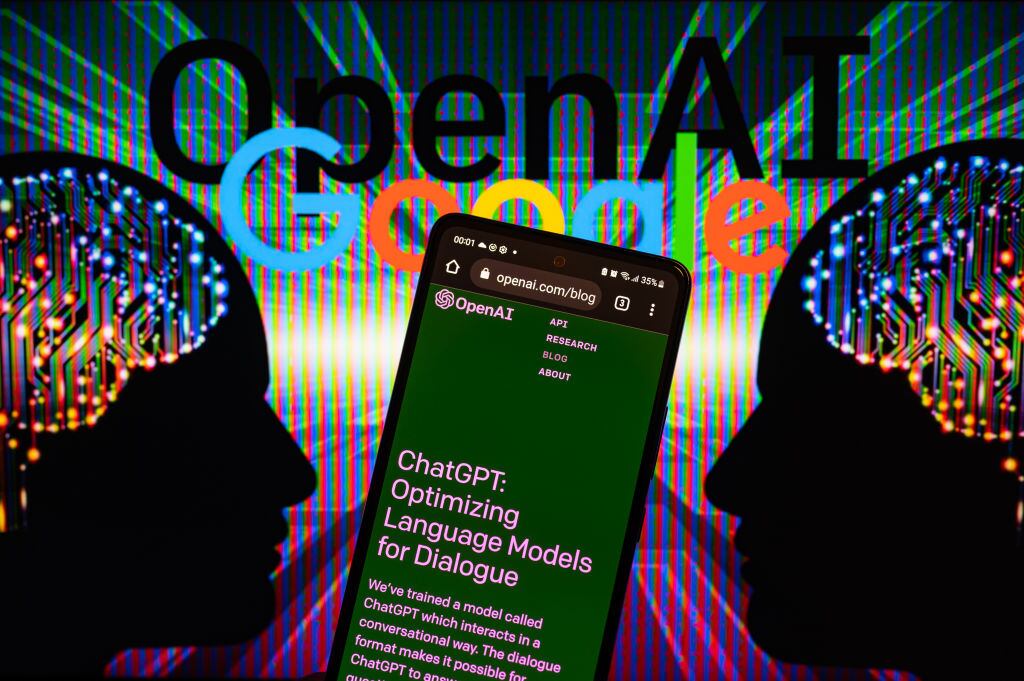
Google - OpenAI displayed on screen with ChatGPT on mobile seen in this photo illustration. Jonathan Raa/Getty. / NurPhoto
One of the main characteristics of AI is its capacity to learn and improve as it accumulates more data. Usually, it is used to improve services, such as anomaly detection and content personalization. An example of this is when we search for shoes on the Internet and then the pages show us articles related to the ones we were looking for.
AI is also employed in facial recognition, voice recognition, and to improve its natural language understanding, enabling it to identify tones, contexts, and even more complex concepts like emotions and sarcasm.
Artificial Intelligence in Music
Naturally, artificial intelligence has made its way into the world of music as well. Particularly on social networks, we have witnessed the release of several songs created entirely by AI. These compositions range from instrumental tracks to complete songs sung by renowned artists or even those who have passed away.
Of course, some artists are against this type of intelligence, but there are others who are venturing into it, like the renowned Paul McCartney, who stated that he uses AI to isolate John Lennon’s voice and thereby produce a final song by The Beatles.
Grammys
The Recording Academy announced a series of changes to the Grammy Awards rules to better reflect the evolution of the music industry. With the expansion of AI’s use in the realm of art, these Awards haven’t been the exception. They have set some new rules for the nomination of material generated with this Artificial intelligence.
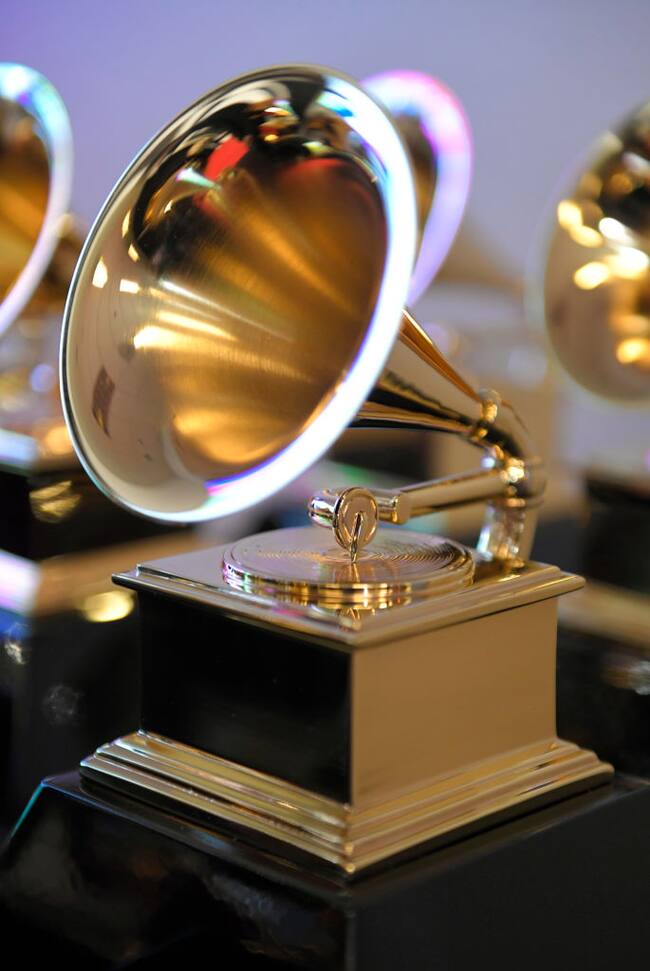
Grammy trophies sit in the press room during the 64th Annual GRAMMY Awards. David Becker/Getty. / David Becker
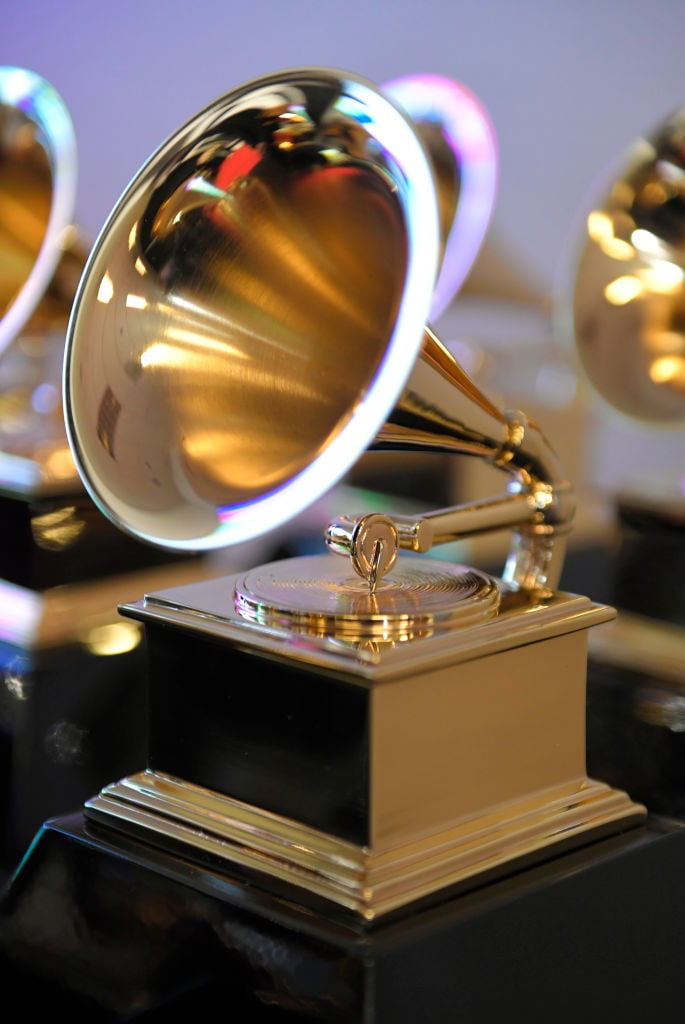
Grammy trophies sit in the press room during the 64th Annual GRAMMY Awards. David Becker/Getty. / David Becker
According to the new guidelines, artists can use AI in their songs and submit them for consideration as long as there is human involvement.
Our world is always changing, and with the rise and progress of artificial intelligence, everything is happening faster. Let’s wait for the surprises that await us and hope for the best. In the meantime, mark your calendars for the next 2024 Grammy Awards, taking place on February 4.
